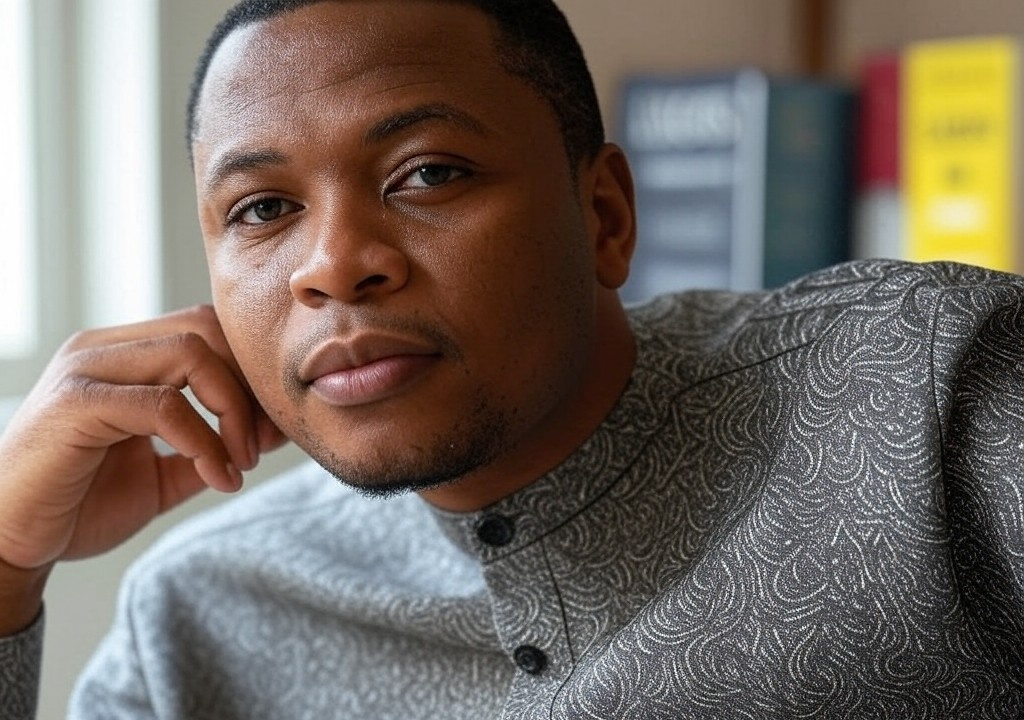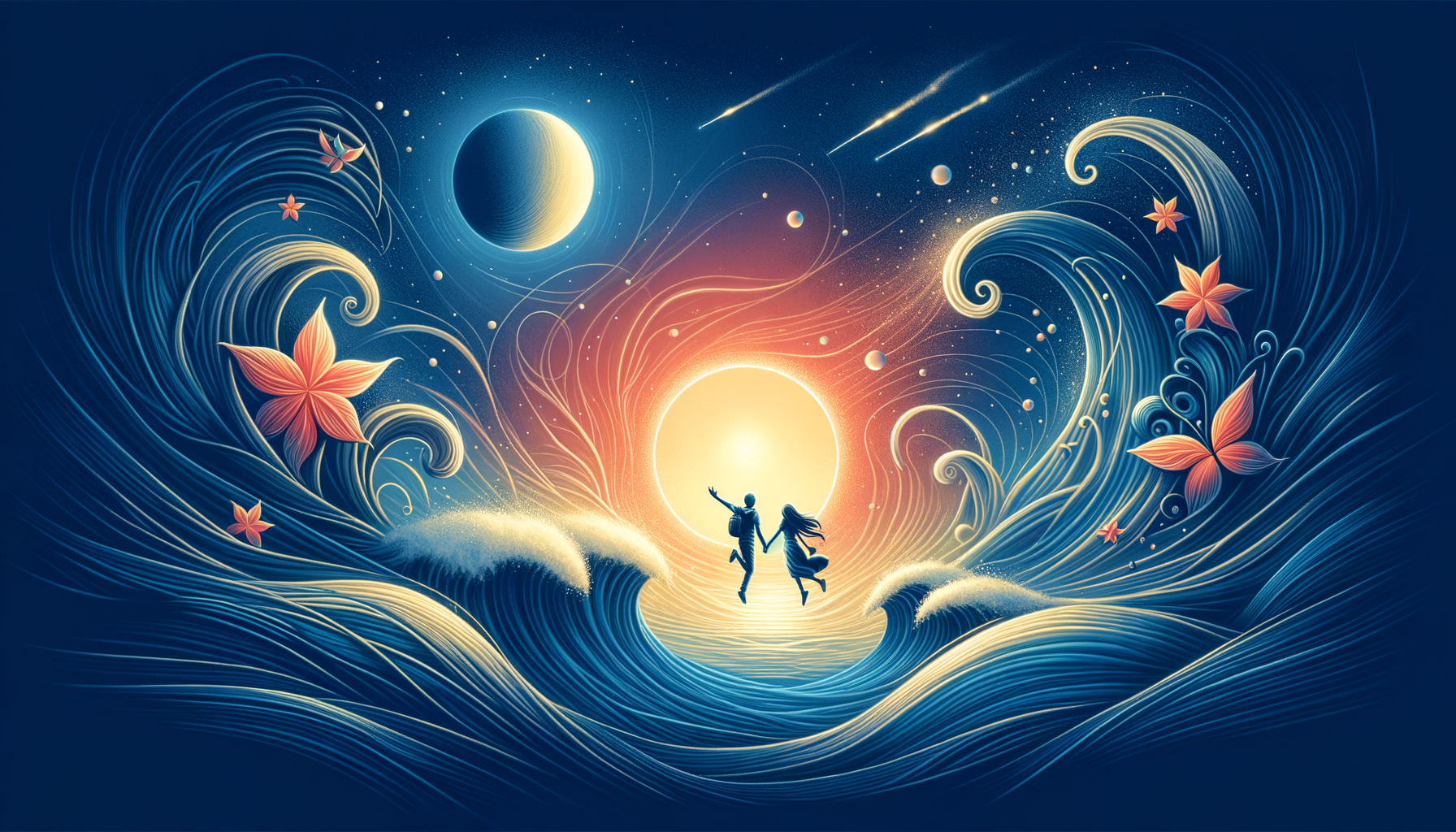I remember the first time someone told me, “You have a way with words.” I was six years old, sitting on the porch in Lagos, trading made-up stories with my cousins. I’d pieced together a wild tale involving stolen mangoes, a talking goat, and an overly dramatic rainstorm. Everyone burst into laughter, clapping me on the back. It was the kind of innocent, fleeting moment you don’t realize will stick with you forever. At the time, I didn’t know I’d go on to write for a living; I just knew words could make people feel something—joy, connection, curiosity. Years later, as I sit here reflecting on the path I’ve chosen, I realize that same desire to explore and connect still fuels me. Only now, I tell slightly more polished stories (and no goats are involved... well, not usually).
So, why did I choose to write about love, connection, and relationships? Because I’ve seen firsthand how messy, beautiful, and transformative they can be. From my parents' 30-plus years of teamwork (and humor—they’ll argue over who burned the jollof rice one minute and laugh about it the next) to my own personal victories and stumbles in love, relationships remain one of life’s great mysteries. And as someone who spent years devouring books, listening to Fela Kuti while nursing heartbreaks, and simply observing people I care about try to figure it all out, I realized I had to share what I’ve learned.
Love Isn't Linear—And Neither Was My Path
When my family moved from Nigeria to Brooklyn, I quickly discovered that love and connection look a little different across cultures. In Lagos, relatives and neighbors overflowed into every part of your life. There was no such thing as “keeping things to yourself”—not when your aunties were already interrogating you about who you talked to after church on Sunday. In Brooklyn, though, I learned to navigate a world where everyone moved at a faster pace and personal boundaries were more pronounced.
That cultural shift taught me something priceless: relationships are shaped as much by misunderstandings as they are by shared moments, and both are opportunities to grow. I'd watch my parents try to adjust to new social cues while leaning on what they knew—like offering food as a universal language. (No one says no to a plate of pepper soup.) I started noticing how small gestures—kind words, a good laugh, or even a quiet moment in someone’s company—could speak volumes. Somehow, it all stuck with me as I grew older and eventually became the lens through which I view love and connection in my writing.
But writing about relationships wasn’t always the dream. I thought I’d end up teaching forever, as I once did in Queens. I loved fostering a space where kids debated Shakespeare and found pieces of themselves in lines of poetry. One day, after a lively discussion about relationships in "Pride and Prejudice," a student turned to me and said, “You have so many stories—why don’t you write about this stuff?” It clicked. I didn’t want to just dissect connections; I wanted to create stories and share insights with as many people as possible. That was my calling.
Lessons Learned from Both Pages and People
Writing about relationships isn’t just about spinning out clever phrases (though I do enjoy the occasional Fela Kuti-esque riff in word form). It’s about reflecting the vulnerability and humor that make relationships relatable. Sure, everyone loves a grand romantic gesture—the Rozes-in-boomboxes moment à la Say Anything. But what about the quieter moments? Like the time your partner brings you tea without asking because they know you’re overthinking everything. Or the debates over pineapple on pizza. (Spoiler: I’m team no-pineapple—don’t @ me.)
Over the years, I’ve picked up the secrets of what makes connections work—and what doesn’t. And no, it’s not just about chemistry; it’s about intentionality. Below are some of my favorite truths, straight from real-life moments and a pinch of literary influence:
-
Be willing to laugh at yourself. Relationships thrive on shared joy, and if you can’t laugh at the time you ruined dinner or accidentally introduced your date as your ex’s name (yes, I’ve done this—please, let’s move on), you’re missing out.
-
Listen more than you speak. My mom always says, “Listening is how you learn the other person’s language.” She meant it literally—my dad’s Yoruba wasn’t perfect when they met—but I found it’s true emotionally, too.
-
Conflict isn’t a villain, avoidance is. Sometimes real growth is hiding behind the hard conversations. Just don’t turn every disagreement into a Nollywood-level drama. Save the theatrics for movie night.
-
Stay curious—about your partner and yourself. People evolve. That person who hated hiking when you met? They might be shopping for hiking boots a year into dating. The same goes for you; each relationship teaches you more about what you need and how you love.
Relationships as Mirrors
One thing I’ve learned on this journey is that relationships are never just about the other person. Every romantic chapter I’ve written—on paper and in my own life—has taught me something about myself. Like how bad I am at texting back (to everyone reading this: my bad). Or how much I value small, consistent gestures over big proclamations. Love, at its core, isn’t always the fairy tale we grew up imagining. You’ll argue over where to put the couch or who left the fridge door open (definitely not me). And that's okay. Those imperfections are where the beauty lives.
In many ways, writing has been the same for me. The page is both a sounding board and a mirror. Writing about dating and relationships forces me to confront my own experiences with honesty. It’s taught me that love isn’t about chasing an ideal but about building something real—with all the quirks and flaws it comes with.
Why This Path—And Why It Still Matters
So, why this path? Because I believe relationships matter, even when they’re complicated, even when they end, and especially when they thrive. Somewhere between Lagos and Brooklyn, between Shakespeare and Fela, I learned that the stories we carry shape who we are. And in sharing my stories—and listening to yours—I’ve found a way to preserve the magic and humanity of connection.
If there’s one takeaway from this piece, let it be this: love isn’t about perfection, and neither is life. Whether you’re single, dating, or deep into a “we-bought-plants-together” relationship, remember to keep showing up, for your partner and for yourself. And along the way, don’t be afraid to laugh at the chaos. After all, a little humor can make even the messiest moments shine.




















